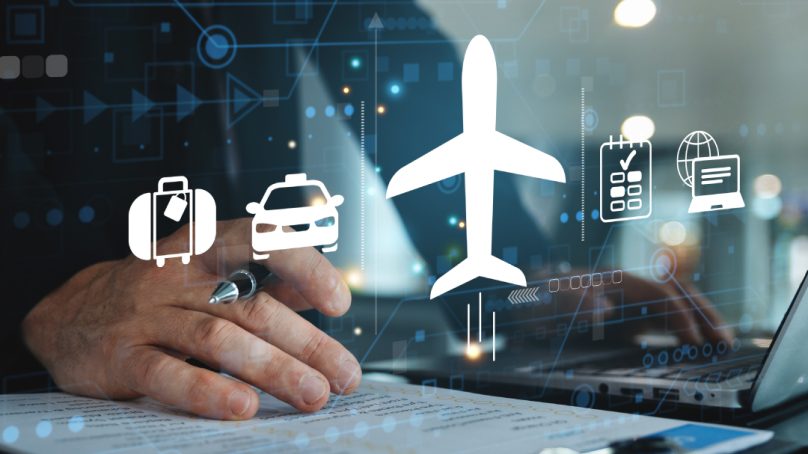

In today’s rapidly evolving hospitality industry, artificial intelligence (AI) has become a business necessity. For hotel investors, smart technology is proving to be a transformative force that enhances decision-making, minimizes risks and drives higher returns. From advanced forecasting to operational optimization, AI tools are equipping investors with deeper insights and faster analysis than traditional methods ever could. Below are nine strategic applications of AI that can help business leaders navigate their hotel investment decisions with greater clarity and accuracy:
1. Market intelligence at unprecedented depth
AI tools can aggregate data from sources such as booking platforms, social media, travel advisories, economic indicators and even weather forecasts. This allows investors to gauge demand trends, identify emerging travel corridors and evaluate the long-term viability of specific markets. For instance, AI-driven demand forecasting models can predict seasonal fluctuations, identify booking behavior patterns and even account for global events or disruptions. Instead of relying on historical data alone, investors can now access dynamic, forward looking insights to guide acquisition and development strategies.
2. Smarter site selection and feasibility analysis:
Selecting the right location for a hotel investment is critical. Crucially, smart technology can assist by conducting sophisticated feasibility studies that evaluate local competition, zoning laws, infrastructure projects, demographic shifts and traveler sentiment. This level of analysis was once a time-consuming manual process. But today, it is available at scale through AI-powered platforms. By simulating scenarios based on different pricing, occupancy rates and capital structures, AI allows investors to project revenue per available room (RevPAR), gross operating profit (GOP) and return on investment (ROI) with much greater accuracy.
3. Precision revenue management and pricing strategies:
AI has significantly improved the science of revenue management. Traditional pricing models often relied on static rules or basic demand curves. Today, smart technology enables dynamic pricing strategies that adjust rates in real time based on competitor pricing, booking pace, local events, consumer sentiment and more. For hotel owners and investors, this means better margin management and revenue optimization. Additionally, AI helps mitigate risks associated with underpricing or overpricing during peak and off-peak seasons. In this way, it can enhance asset performance and improve investor confidence in forecasted returns.
4. Enhanced operational efficiency:
Operational costs are a critical component of hotel investment performance. Importantly, smart solutions help streamline operations in multiple ways. These include:
• predictive maintenance systems that identify equipment issues before they become costly failures
• AI staffing models that ensure optimal labor allocation based on occupancy forecasts and guest flow
• energy management systems that automatically adjust lighting, HVAC and utilities for efficiency. These operational improvements translate to reduced expenses, higher EBITDA and more sustainable operations.
Importantly, these are all key metrics for investors evaluating long-term asset performance.
5. Real-time reputation and sentiment analysis:
in the digital age, guest feedback can make or break a hotel’s success. AI uses natural language processing (NLP) to scan guest reviews, social media mentions and online travel agency (OTA) comments. Investors can gain a real-time understanding of a hotel’s reputation and service quality. This insight is particularly valuable when assessing turnaround opportunities. For instance, a property with low occupancy but strong guest sentiment may present a high-return repositioning play. Conversely, negative sentiment can be a red flag that prompts deeper operational review during due diligence.
6. Accelerated due diligence and risk assessment:
AI tools now play a pivotal role in expediting due diligence during acquisitions. These systems can:
• analyze historical financials and compare them to benchmarks
• scan legal documents for anomalies or risk indicators
• flag potential issues with zoning, environmental compliance or supplier contracts.
AI can also simulate macroeconomic and geopolitical scenarios to assess downside risk. This empowers investors to price risk appropriately and negotiate deal structures that protect capital. In volatile markets, these
tools are invaluable for avoiding mispriced or high-risk assets and ensuring smarter capital deployment.
7. Portfolio optimization across multiple assets:
As investors build diversified hospitality portfolios, AI assists in performance monitoring and optimization.
Portfolio-level analytics powered by smart technology can:
• identify underperforming properties
• recommend reallocation of capital toward higher-yield markets
• detect market saturation and provide insights for strategic divestment.
AI also supports centralized dashboards that consolidate KPIs such as ADR, occupancy, RevPAR, GOPPAR and sentiment scores across all properties, enabling faster strategic decisions.
8. Enhanced investment modeling and scenario planning:
Hotel investment is inherently cyclical and sensitive to global events. Crucially, AI enhances investment modeling by simulating how different variables – interest rate changes, pandemic outbreaks and labor shortages – can impact performance. This enables hotel investors to construct more resilient business models. For example, smart technology can help determine how flexible a property’s cost structure is under different occupancy scenarios or how capital expenditures would impact valuation in the next five years. Such scenario planning tools allow investors to stress test deals before committing, helping to safeguard returns and reduce exposure.
9. AI-powered deal sourcing platforms:
Emerging platforms are using AI to match hotel investors with suitable acquisition or development opportunities based on pre-set investment criteria. These platforms analyze real time data from brokers, public listings and proprietary databases to surface deals that fit an investor’s target profile. Some systems even integrate ESG scores, brand performance and lease structures into their evaluations. This gives investors a competitive edge in sourcing opportunities that may not yet be widely marketed. The integration of smart technology into the hotel investment process represents a paradigm shift in how decisions are made and capital is allocated. From the earliest stages of market selection to long-term portfolio optimization, AI offers a strategic edge that forward-thinking investors can no longer afford to ignore. By leveraging AI, investors are not only improving the accuracy of their forecasts but also increasing agility, reducing risk and unlocking greater value across their hotel portfolios.
As AI continues to evolve, its applications in hospitality investment will only deepen. The winners in this new landscape will be those who embrace the tools early – and use them wisely.

Abdul Kader Saadi,
founder and managing director of Eighty6 Tech
@eighty6.tech
eighty6.tech








